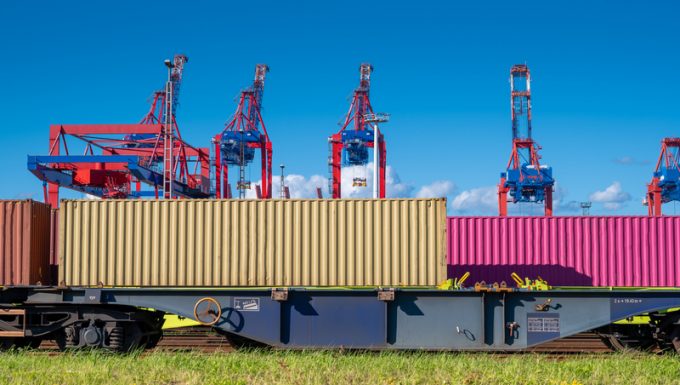HHLA to buy a 51% stake in Austrian intermodal specialist Roland Spedition
Hamburg terminal and intermodal operator HHLA is set to expand its central European rail network, ...

Action from port authorities, combined with “bold regulatory moves”, will be necessary to enable a modal shift from road to rail across Europe, a new report from McKinsey claims.
Bold Moves to Boost Rail Freight urges European governments to consider rail investment in the context of the “public good”, and highlights that profitability was rarely the first consideration when building, for example, a road between two small villages.
“However, for more than 30 years, rail infrastructure operators have prioritised profitable lines over unprofitable ones,” the report says.
It further argues that dedicated rail lines would be a boon for an industry with daytime slots difficult to obtain, thanks to Europe’s prioritisation of passenger services.
McKinsey argues that, if the expenditure associated with road building and maintenance, which are “externalised” and “borne by society at large”, were instead equated with those of rail, the latter would win out in terms of cost-efficiency.
It cites an International Union of Railways (UIC) study which found that 14% and 9% of external transport costs in Europe were attributable to heavy and light duty vehicles respectively, while rail was responsible only for 1%.
Austria and Switzerland have introduced measures to diminish this disparity and could be seen as pioneers, with “a differentiated tonnage limit for road transport that decreases the attractiveness of road transport for international freight transit”, “substantial tolls on highways and weekend and overnight traffic bans for international transit” in the former country and construction of the Gotthard Tunnel in the latter.
But for ports, McKinsey highlights several examples which have low shares of rail traffic: 17% at Felixstowe, 7% at Valencia it was 7%; and 8% at Antwerp – although the Belgian gateway does have significant volumes moving by barge. Antwerp Port Authority said around 34% of its inland freight traffic moved by barges and it had plans to increase rail’s share to 15% by 2030.
The report says investment from ports would be pivotal in shifting cargo to rail.
“Rail access to ports is therefore a crucial factor in fulfilling Europe’s aspiration for freight rail. Boosting those modal shares to the region of 40%-50% would have significant impact on the overall modal share of rail freight in Europe.”
The port of Hamburg is a standout example in this respect, it says, with various investments driving its rail modal share up to 51%.
But in France, where some 40bn tonne-km of cargo annually moves from Spain and Portugal to central Europe, on an average haul of more than 500km just 5% travels by rail.
Comment on this article
gunther ginckels
January 24, 2022 at 4:20 pmI will be the last to question McKinsey’s factual data…. but they do mis some context. Cargo does not need dayslots while passengers are not moving during nighttimes. Also cargo benefits from “overnight” slots where trains are loaded during day time and discharged the next daytime. With the privatisation of European Rail and the forced (rightfully) split between the rail-infrastructure companies and the train-operating companies we have seen private operators emerging. What these private operators do is only start a rail-link service when they have sufficient volumes in the specific corridor, thereby leaving the “leftovers” with the “National” state-owned railway operators. Latter activity is by definition inefficient and thus either lossgiving or excessively expensive to the users. Antwerp has the potential to increase its rail throughput due to a dense Port & National rail network. It allows the consolidation of part-volumes and through its volumes sufficient traffic to offer frequent raillinks to several european destinations. Next issue is the “what goes up – must come down” principle. One of the OBOR handicaps is that China / Europe is for 80% a on-way traffic and in terms of slotcosts the price for a train with full containers is the same as the price for a train with empty containers. Than there is the Hamburg story – also named “The Hamburger Abkommen” What it means is that the german state and Hamburg have found ways to subsidise rail transport products allowing very competitive tariffs. It explains the success. And France ? Well France is France – They SAY “yes we will privatise and allow private operators to use the railway network” They DO “we will make it so difficult for private operators that they say thanks but no thanks”. That leaves only the Renault’s, Peugot’s, Citroen’s and Total’s to run “private” trains over the French railwaynetwork.
Chris Gosling
January 25, 2022 at 7:12 pmThis looks like poor information regarding the Port of Felixstowe – local site Felixstowe Live will be publishing some correct info tomorrow!